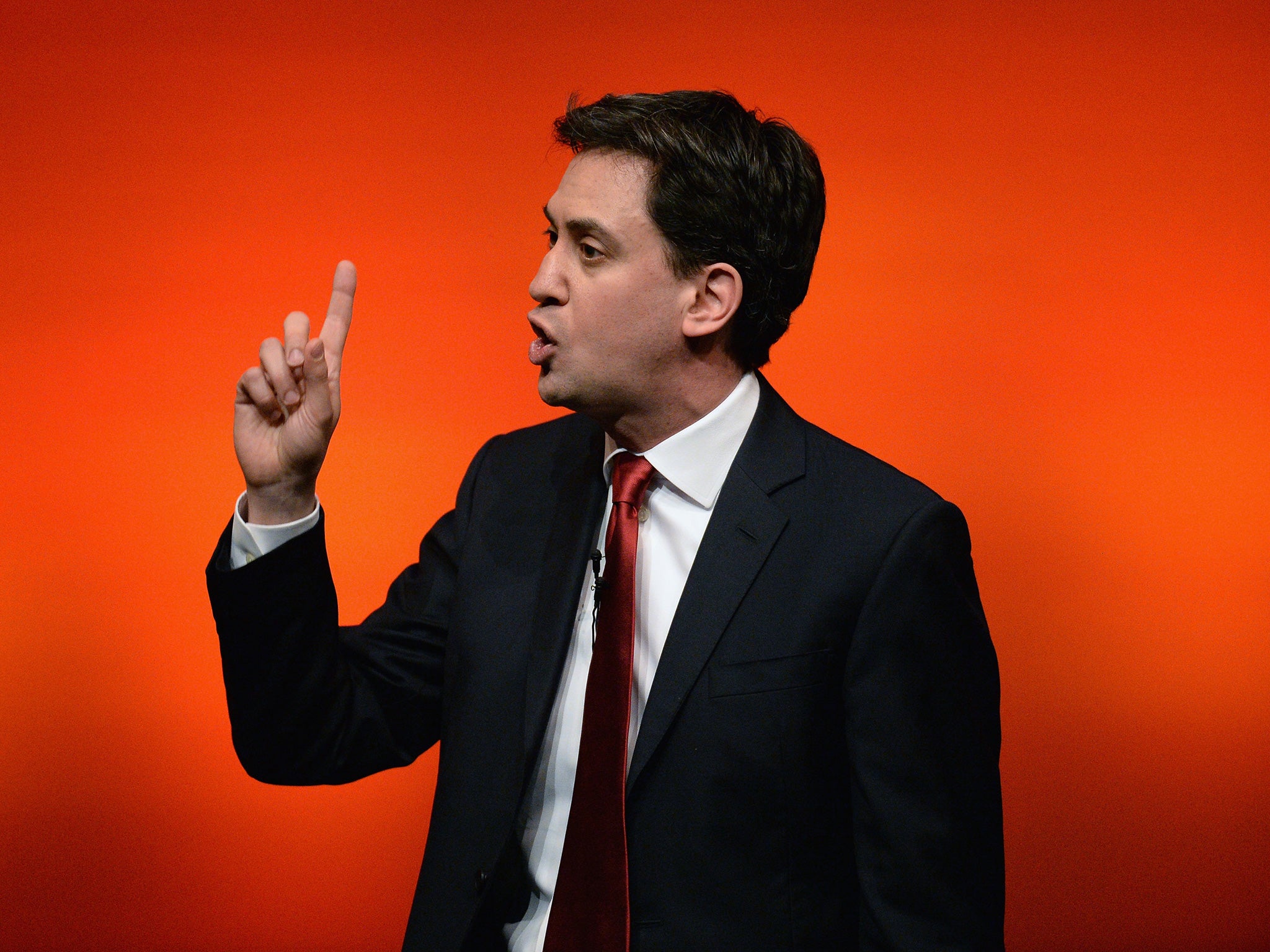Your support helps us to tell the story
From reproductive rights to climate change to Big Tech, The Independent is on the ground when the story is developing. Whether it's investigating the financials of Elon Musk's pro-Trump PAC or producing our latest documentary, 'The A Word', which shines a light on the American women fighting for reproductive rights, we know how important it is to parse out the facts from the messaging.
At such a critical moment in US history, we need reporters on the ground. Your donation allows us to keep sending journalists to speak to both sides of the story.
The Independent is trusted by Americans across the entire political spectrum. And unlike many other quality news outlets, we choose not to lock Americans out of our reporting and analysis with paywalls. We believe quality journalism should be available to everyone, paid for by those who can afford it.
Your support makes all the difference.Ed Miliband has been subjected to a social media backlash after he suggested in a speech that the government bore some responsibility for migrant deaths in the Mediterranean.
The Labour leader said the lack of post-conflict planning by the UK during its intervention in Libya had caused instability which was leading many migrants to make the dangerous journey to Europe.
In a pre-briefed address Mr Miliband will deliver at the think-tank Chatham House today, he will say:
“Since the action, the failure of post-conflict planning has become obvious. David Cameron was wrong to assume that Libya’s political culture and institutions could be left to evolve and transform on their own … The tragedy is that this could have been anticipated. It should have been avoided.”
Labour supported the intervention in Libya in 2011, though it did raise the issue of post-conflict planning with the Government as British forces assisted rebels.
“Will [the foreign secretary] tell the House what progress has been made on investigating at least the possibility of an escrow account for Libyan oil money that could contribute to a fund to address post-conflict reconstruction in Libya?” shadow foreign secretary Douglas Alexander asked in a statement to the House of Commons on 24 March 2011.
“Does the Foreign Secretary believe that a lead individual of international standing should be appointed to take charge of co-ordinating post-conflict planning?
“The whole House and the public will want to know what work is under way on contingency planning. I heard his remarks about an international stabilisation effort and the work of the International Development Secretary. What, in the British Government’s view, are the structures equal to this immense task, who will lead the work and how will the House be assured that this vital work is being done?”
He was echoed by Labour’s Dan Jarvis, an Iraq war veteran, who asked: “May I push the Foreign Secretary a little further on any international stabilisation force? What is the Government’s thinking on which UN agency should lead any post-conflict work, and which individual would lead such a potentially huge task?”
William Hague, who was at the time Foreign Secretary, said the Government had not yet prepared for the post-conflict situation and that it would do so in the coming weeks.
“Those are perfectly legitimate questions, but slightly in advance of where we have got to. My right hon. Friend the International Development Secretary is engaged in discussions about that. There are a variety of agencies and a variety of individuals who can lead it. That is one of the things that we will be able to discuss with our partners at the conference next week,” he replied.
Liberal Democrat leader Nick Clegg described Mr Miliband's intervention as "political point-scoring" over a "human tragedy".
Conservative Environment Secretary Elizabeth Truss told BBC News: "It's absolutely offensive that Ed Miliband should be suggesting that David Cameron is directly responsible for those deaths, which is what he appears to be suggesting.
"I think that's offensive in the course of an election campaign to use that type of terminology when talking about the actions of a prime minister."
The Government previously said that it actively opposes rescue missions in the Mediterranean because it has theorised that they act as “pull factor” for migrants making the journey to Europe.
After a significant rise in migrant deaths in recent months David Cameron has now said the UK will help with rescue efforts but that refugees will not be allowed to come to the UK.
Mr Miliband’s speech was wide-ranging and primarily accused the Coalition government of pursuing an isolationist foreign policy.

Join our commenting forum
Join thought-provoking conversations, follow other Independent readers and see their replies
Comments